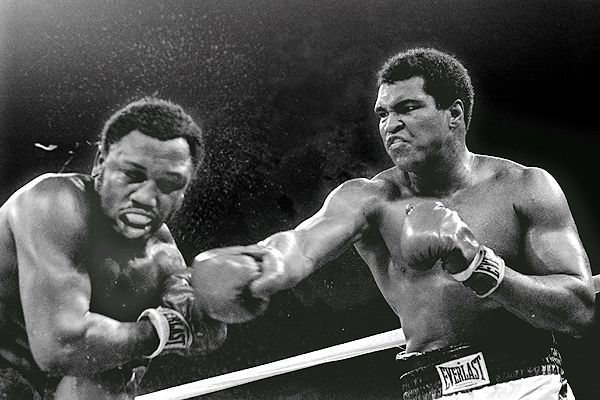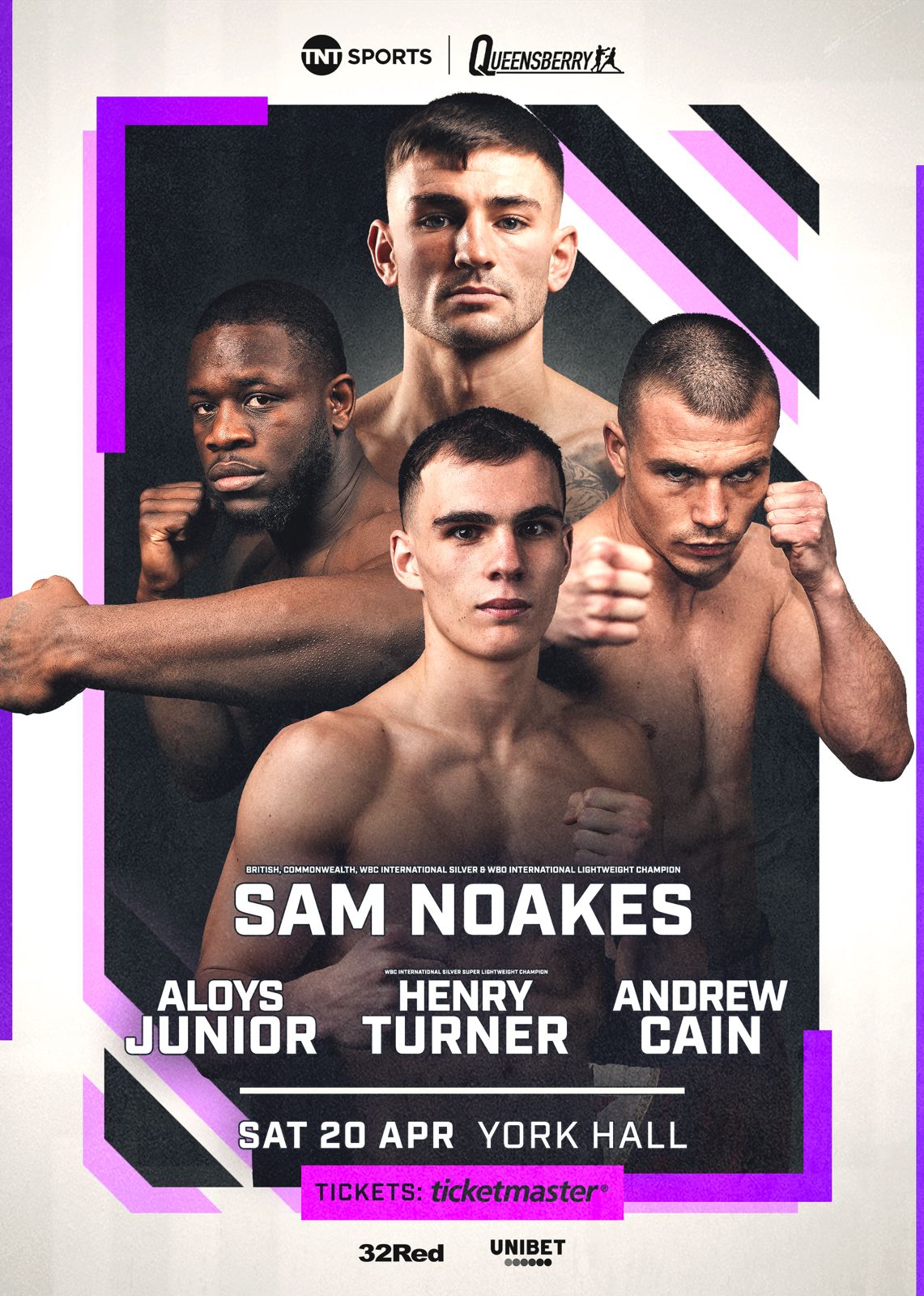Remembering the Manila morning when Ali and Frazier duelled almost to the death
HUBBARD’S CUPBOARD – 26.09.2015
By Alan Hubbard
Imelda Marcos had on her dancing shoes, selected from her famous collection of footwear, some 3,000 pairs.
The occasion was a gala ball at the sumptuous palace in Manila she shared with her husband Ferdinand Marcos, the lavish-living president of the Philippines.
She had arranged it in honour of Muhammad Ali, the world heavyweight champion who was there to defend his title against old enemy Joe Frazier. So, naturally, as the band struck up, she approached Ali and asked him for the first dance.
There was an embarrassed silence as Imelda’s invitation was politely declined.
Ali’s big secret was out. He couldn’t dance (actually he couldn’t swim, either).
The possessor of heavyweight boxing’s fastest feet had rapturous rhythm in the ring but the man who had quickstepped his way to fistic immortality couldn’t tell a waltz from a tango.
The inventor of boxing’s soft shoe shuffle was a dunce on the dance floor.
A couple of days later, at a time of the morning when Regency gentlemen used to fight their duels, Ali and Frazier did share a dance – but it was a war dance, culminating in the most brutal and unforgettable of heavyweight title fights. Ali v Frazier III, aka The Thrilla in Manila.
In an atmosphere more resembling a bear pit, before a full house of screaming Filipinos, Manila was about to witness a torrid encounter which surely ranks as the greatest heavyweight title fight in the annals of boxing. The date: 30 September 1975.
Actually, because of the time difference and demands of US television it was Wednesday 1 October in Manila , or rather Quezon City, a dusty suburb six miles from the capital where the sweltering Areneta Coliseum was packed to the rafters, The Thrilla in Manila had been conceived by Don King, and bankrolled by the dubious dictatorial regime of President Marcos.
So much has been said and written about the tumultuous conclusion of their titanic trilogy that words seem superflous. Unquestionably it was the greatest fight I have been privileged report, outstripped as a sporting spectacle only by the preceding Rumble in the Jungle.
It is no exaggeration to say that either or both combatants could have died. Those of us who witnessed first-hand the 14 rounds of bloody attrition agree with the American boxing writer Jerry Izenberg who said they were fighting for “the championship of each other”.
It was a fight which Ali won, but neither man lost, one that transcended titles and money.
It will be exactly 40 years on next Wednesday but that morning glory remains as vivid in the mind as it was then.
The previous year, Ali had demoralised George Foreman in Zaire in what was arguably his defining performance and the most bizarre occasion in heavyweight boxing. Norman Mailer wrote an entire book about it, called The Fight, but in essence what happened in Manila was the fight of a lifetime.
There we witnessed a bout that transcended anything the sport had seen before. Neither man would ever be the same again; for both it was to prove a fight too far. Ali was to describe it later as “the closest thing to dyin’.”
The word “epic” is a label all too casually applied, whether it is films or fights, but not in this case. This was boxing’s Gone WithThe Wind. Ali had launched it with a poem: “It will be a killa and a chilla and a thrilla, when I get the gorilla in Manila.”
Frazier was incensed, gritting, “I want his heart”. A decent, simple man, brought up in cotton-picking country, Frazier was never able to comprehend that Ali’s “insults” were designed just to psych him out and sell more tickets, as they had been on the two previous occasions the pair had met, Frazier memorably winning “The Fight of the Century” at Madison Square Garden in 1971 and Ali their non-title return three years later.
To his dying day in November 2011 a bitter Frazier had little pity for Parkinson’s-stricken Ali’s condition, though he himself walked with a limp as a result of a car accident and his own speech was slurred.
Both had reigned in an age when world boxing crowns were not bits of bling. Ali fought, and beat, everyone of note as well as many others of little consequence. No challenge was shirked, though some proved more difficult than others, notably those against two men he met three times. One was Ken Norton; in the first encounter Ali’s jaw was broken, and all ended in controversial points decisions. The other was Frazier.
Ali’s people thought before the last act in their trilogy that Smokin’ Joe was a dying ember. They should have known he would be fired up to face the one man who was in his head, and in his blood.
On the assumption that this would be a fairly easy encounter, Ali spent much of the time before the bout canoodling with his new girlfriend, Veronica Porsche, a stunning model whom he was later to marry. However, at the time he was still wedded to his second wife, Belinda, who when she saw Ali blatantly parading Veronica on the TV news, caught a plane to Manila where she gave him almost as hard a time out of the ring as he was later to have inside it with Frazier.
We watched open-mouthed as Belinda, a black belt in karate, stormed into Ali’s hotel lobby and up into the room where he and Veronica were staying, ripping the drapes from the windows and wrecking some of the furniture.
Facial scratch marks were testimony to the fury vented on her husband before she flew back to the US the same day, her suitcases unpacked.
There was another incident after the weigh-in, where Ali, always an incorrigible ladies’ man, disappeared upstairs to a gantry with an attractive female reporter.
He was immediately chased by his trainer, Angelo Dundee, who, we learned later, had discovered them as were, shall we say, about to become briefly romantically entangled.
However none of Ali’s antics sapped his strength judging from the ferocity of that fight. Ali was in control in the early rounds, but Frazier refused to wilt, pounding hooks into the champion’s body and forcing him on to the ropes. Ali was unmoved though impressed. In a clinch, he muttered to Frazier: “Joe, they told me you was washed up.” Frazier fired back: “They lied!”
The exchanges then proceeded with such brutal intensity that one almost had to shield eyes already damp with the sweat running into them because of lack of air conditioning in the sauna-like arena which topped 100 degrees.
Ali was to say later: “Man, I hit him with punches that’d bring down the walls of the city. Lordy, he’s great! Joe Frazier is one hell of a man. If God ever calls me to a holy war, I want Joe Frazier fighting beside me.”
The tributes were not returned by Frazier. But the punches were, both men belabouring each other with relentless savagery.
Frazier’s eyes had begun closing in the ninth. By the time he came out for the 13th he could barely see and Ali sent his gum-shield flying some ten rows back into the crowd with the second of two massive right hooks.
By the end of the 14th round, Ali himself was exhausted and Frazier’s features so grotesquely swollen, with one of his eyes so completely closed he had to be guided back to his corner by the referee. It was then that Frazier’s legendary trainer, Eddie Futch, acted with foresight and compassion, refusing to let his man come out for the final three minutes.
“Sit down son,” he told him calmly as Frazier angrily remonstrated. “ It’s all over but no-one will ever forget you did here today.” And no-one has, least of all Ali.
In the opposite corner, Ali was visibly relieved, momentarily slumping to the canvas even before Filipino referee Carlos Padilla could raise his arm. He had told cornerman Dundee to cut off his gloves. Dundee ignored him, sponging his face down for the last hurrah that wasn’t to be. “Frazier quit just before I did,” Ali was to confide some years later. Even if the truth was that Futch made Frazier quit.
I was in Frazier’s darkened dressing room later when Ali, his own torso smothered in welts, walked in and saw Frazier’s then 14-year-old son Marvis (later to himself become a heavyweight contender battered by Larry Holmes and Mike Tyson, and subsequently a preacher) sobbing on a bench alongside his horribly bruised and bleeding father.
First he offered his commiserations to a mute Joe, then turned to Marvis and said: “Tell your father all the stuff I said about him – I didn’t mean it. Your father’s a helluva man. I couldn’t have taken the punches he took today.”
Seeing Marvis tears he demanded: “What you cryin’ for, boy?”
“I’m crying ‘cos my daddy got beat,” came the reply.
Ali looked at him: “You stop that, you hear. Your daddy lost nuthin’. He’s a winner. Just you remember that for the rest of your life.” It was one of the many things about that day that all of us there will remember for the rest of our lives, too.







